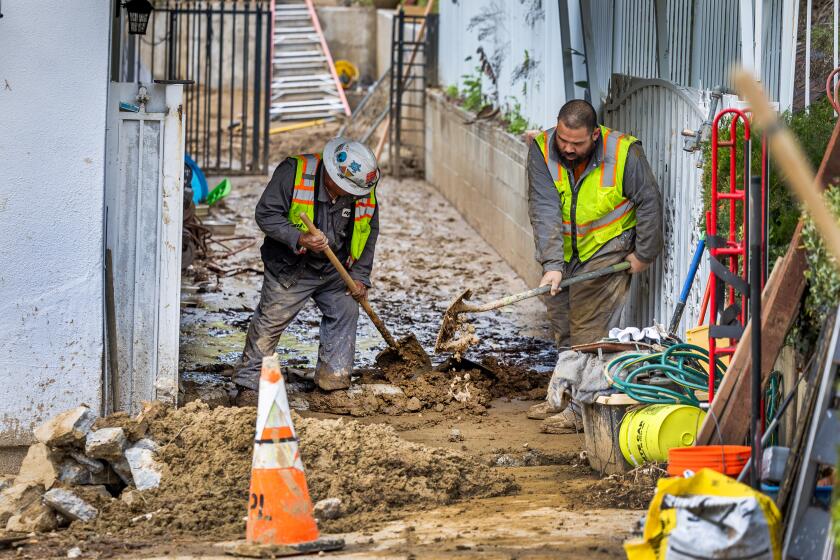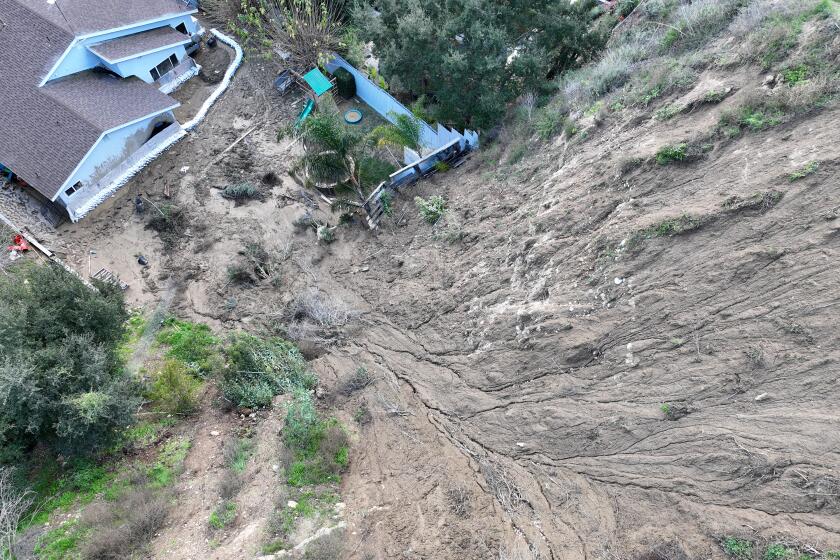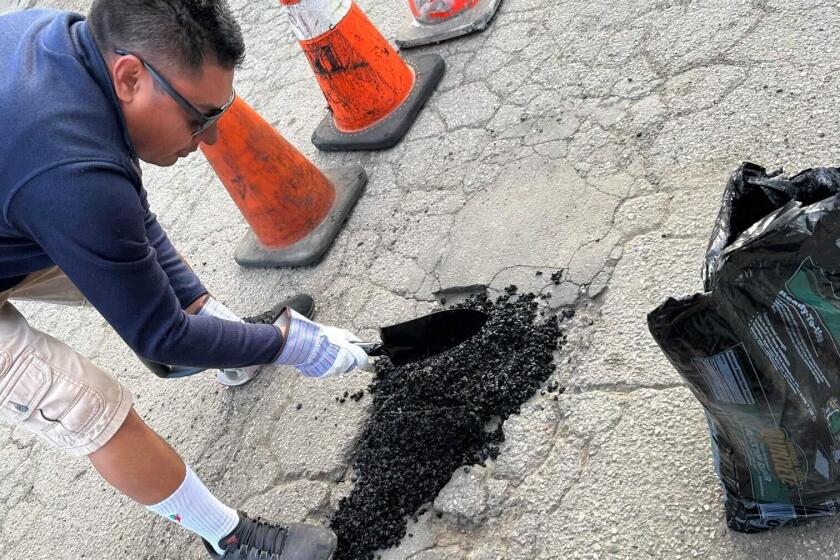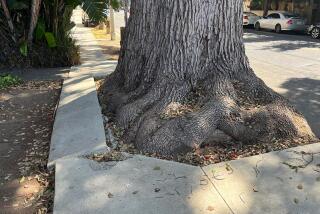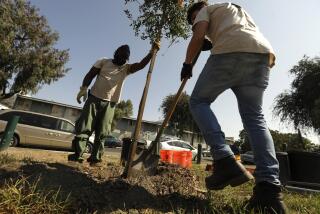Nobody likes potholes. How one L.A. County city is trying to eradicate them
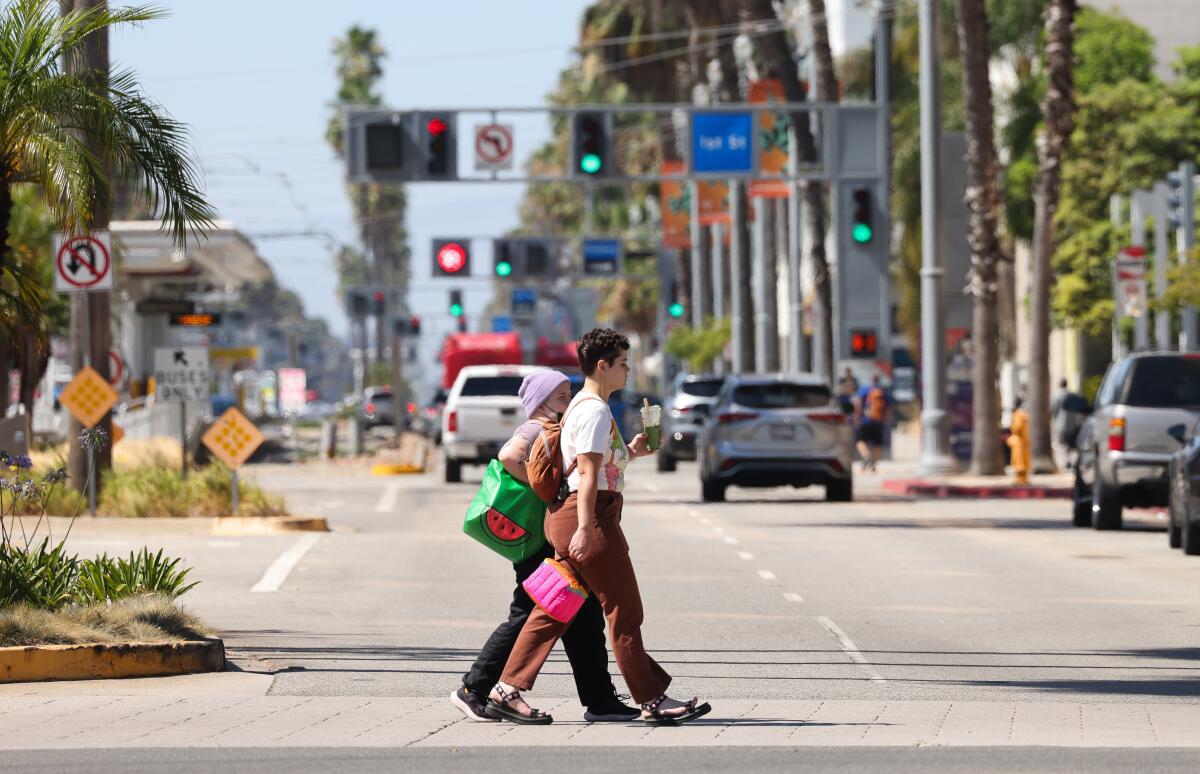
- Share via
After record-breaking winter rain left Long Beach’s roads riddled with tens of thousands of potholes, residents grumbled about how long it would take to smooth out the motorist minefield.
Just a few months later, a significant slice of the maintenance log has been cleared — an accomplishment city officials credited to stepped-up attention and investment.
In May, the city launched a new Spring Cleaning Initiative — a community cleanup and beautification campaign that included the goal of filling roughly 63,000 potholes.
After nearly three months, the city says it has repaired at least half of them.
Already inundated by record rainfall, Southern California is facing another major storm Presidents Day weekend that could bring new risks for mudslides and flooding in vulnerable areas saturated with water.
Potholes occur when water penetrates the surface of the road and affects the underlying base material, said Jennifer De Prez, a city spokesperson. The infiltration compromises the integrity of the roadway, leading to fractures that over time grow into potholes.
The rainfall in Long Beach from February to April totaled nearly 24 inches, roughly double what it gets in a typical year. And all that extra water spawned plenty of additional potholes, according to the city.
Water infiltration from the rain weakened road surfaces, leading to a 30% increase in potholes citywide, De Prez said.
After city officials took stock of the situation, they anticipated fixing 63,000 potholes — including 10,000 that predated the precipitation.
While residents would like potholes fixed as soon as possible, De Prez said they cannot be filled during inclement weather.
“The city proactively identified the later spring and summer months to tackle the increase in potholes before the start of the next rainy season,” she said.
The Los Angeles River worked exactly how it was supposed to in the latest storms, but climate change and extreme weather pose challenges for flood defenses.
How was Long beach able to refill the large number of potholes?
Long Beach’s pothole crews are part of the city’s Public Works Department. They work year-round and, on average, repair 40,000 potholes annually.
There are five permanent crews composed of 18 full-time public works employees, as well as three part-time staffers from the Conservation Corps of Long Beach.
When the city launched its reinvigorated pothole refilling efforts in May, it expanded staffing to six crews deployed six days a week — doubling the department’s standard operations, De Prez said.
Crews fix potholes reported by the community and, if they spot unreported damage in the same general area, they’ll repair it as well, “until the daily supply of hot asphalt is exhausted,” according to the city.
“Crews will also select major streets to address all potholes within city limits, done so using an equity lens so that repair resources are shared throughout all areas of the city,” De Prez said.
Rain breeds potholes in aging roads around Southern California. You can file a claim for damage your car incurs, but reimbursement is not guaranteed.
The Public Works Department also ordered three more heated boxes that help keep hot asphalt at the optimal temperature during transport — in effect doubling productivity by increasing the fleet from three to six trucks, she said.
Another effort, the public works slurry program, addresses approximately 9 million square feet of road surface annually to reduce the number of potholes that emerge over time, De Prez said.
“As we strive to significantly reduce the number of potholes citywide, we understand that new potholes will continue to develop due to the nature of our older streets and environmental elements such as weather and heavy vehicles,” De Prez said.
The city’s goal is to slash the pothole count to below 10,000 before the next rainy season.
A cease-and-desist letter says the two could face fines, penalties and ‘potential liability for damages’ for ‘unauthorized repairs to public roadways.’
How do larger cities compare to Long Beach’s efforts?
It’s difficult to compare Long Beach’s pothole repair efforts to larger or more populous cities such as Los Angeles or San Francisco.
Long Beach spans approximately 52 square miles, a bit more than San Francisco’s 47, but only a fraction of the 469 square miles that make up the city of Los Angeles.
Los Angeles has 29 two-person trucks under its Bureau of Street Services, or StreetsLA. On average, StreetsLA has 10 to 12 pothole repair crews out at any given time every day of the week, said Oliver Hall, a spokesperson for the Department of Public Works.
For the record:
3:06 p.m. Sept. 16, 2024An earlier version of this article identified Oliver Hall as an L.A. Bureau of Sanitation representative. He’s a spokesperson for the Department of Public Works.
The city of San Francisco has 14 workers split among three or four crews, depending on need, and one supervisor, said Rachel Gordon, director of policy and communications for San Francisco Department of Public Works. The department is currently short one crew of five people.
Road closures and treacherous driving conditions have confronted drivers as agencies work to repair potholes caused by the winter storms.
On average, San Francisco’s crews fill 12,000 potholes a year — with a goal of repairing reported potholes within three business days. About a quarter of those are filled under a proactive public works operation that focuses on residential streets in a different area every month, Gordon said. The other 9,000 are typically requests for service.
San Francisco has a goal of resurfacing 500 of the city’s approximately 12,900 blocks a year, Gordon said.
The L.A. Bureau of Street Services did not share how many potholes it repairs each year on average, but said 52,500 have been filled so far this year.
This year, 33,000 service requests have been logged through MyLA311, an app on which residents can request a wide array of services.
More to Read
Sign up for Essential California
The most important California stories and recommendations in your inbox every morning.
You may occasionally receive promotional content from the Los Angeles Times.
